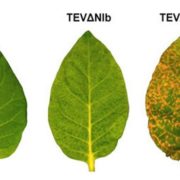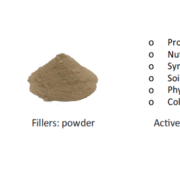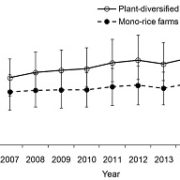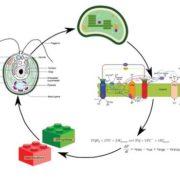MATRILINEAL, a sperm-specific phospholipase, triggers maize haploid induction ($)
 Sexual reproduction, with all that recombination and independent assortment, is an excellent way to generate genetic diversity and increase the likelihood that some progeny will survive. However, the seed industry strives to produce genetically uniform seeds. Although there are various ways to circumvent sexual reproduction through the production of a double haploid, none are easy. In the 1950s, a maize line was identified that produces a high frequency of double-haploid progeny. Through genetic mapping, knock-down and complementation studies, Kelliher et al. identified an allele of MATRILINEAL, a gene encoding a pollen-specific phospholipase, as the basis for haploid induction in this line. They also showed that the gene product is specifically found in the cytoplasm of the male gametes and identified a further 15 pollen-specific genes upregulated in inducer pollen. This study shows the importance of non-nuclear components of pollen and provides opportunities for double haploid production in other cereals. Nature 10.1038/nature20827
Sexual reproduction, with all that recombination and independent assortment, is an excellent way to generate genetic diversity and increase the likelihood that some progeny will survive. However, the seed industry strives to produce genetically uniform seeds. Although there are various ways to circumvent sexual reproduction through the production of a double haploid, none are easy. In the 1950s, a maize line was identified that produces a high frequency of double-haploid progeny. Through genetic mapping, knock-down and complementation studies, Kelliher et al. identified an allele of MATRILINEAL, a gene encoding a pollen-specific phospholipase, as the basis for haploid induction in this line. They also showed that the gene product is specifically found in the cytoplasm of the male gametes and identified a further 15 pollen-specific genes upregulated in inducer pollen. This study shows the importance of non-nuclear components of pollen and provides opportunities for double haploid production in other cereals. Nature 10.1038/nature20827









Leave a Reply
Want to join the discussion?Feel free to contribute!